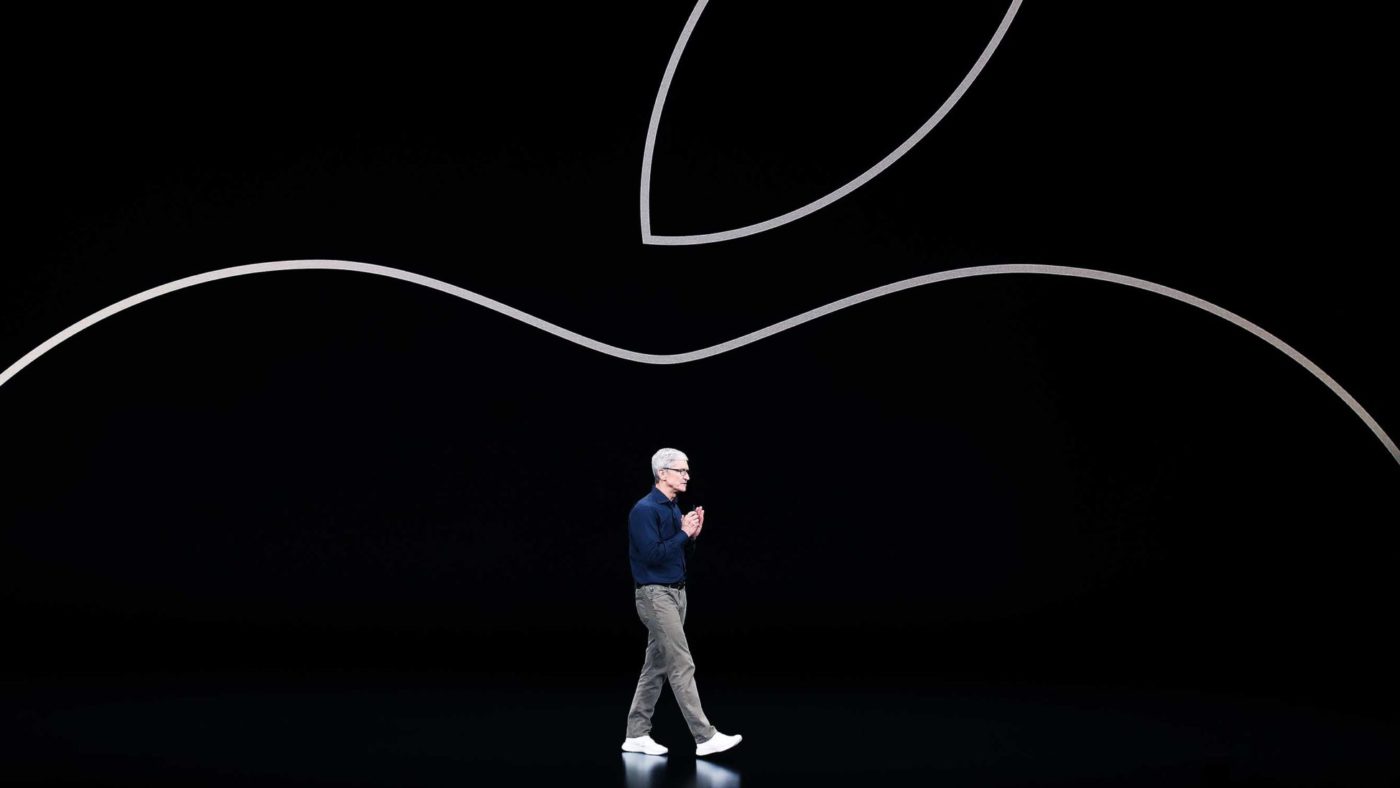The question is when, not if, “Big Tech” will “get regulated”.
I can’t remember the last time I flicked through a newspaper and didn’t stumble on a columnist condemning the “arrogant” FAANGs (Facebook, Apple, Amazon, Netflix, Google) and demanding that regulators bring them to heel. (As an aside, I can’t think of logical reason to group in Netflix beyond FAANGs sounding more sinister than GAFA.)
But alongside the usual suspects, Big Tech (or at least a subsection of it) gained a surprising new critic, Apple CEO Tim Cook. Cook told Axios: “I’m a big believer in the free market. But we have to admit when the free market is not working. And it hasn’t worked here. I think it’s inevitable that there will be some level of regulation.” In particular, Cook focused his criticism on firms that fail to protect users’ privacy calling for a “comprehensive federal privacy law in the United States.”
Cook’s outburst may not be entirely altruistic. There’s a whiff of “Baptists and Bootleggers” here. Google, Apple’s main rival in the smartphone space, has built a business on using data to sell advertising. Apple, on the other hand, makes money by selling high-end devices. Any regulation that inhibits advertising-based business models will hobble Apple’s rivals.
But I doubt that it’s the only reason Cook is backing a US-version of GDPR. Apple has rightly always protected its brand and privacy is increasingly part of the brand; think of FaceID and refusing to break encryption at the behest of US law enforcement. By standing strong on privacy they’re better able to lure in privacy-conscious consumers who otherwise might get the latest Pixel.
Apple’s call is at least coherent. Often, Big Tech is put in a lose-lose situation. Either they’re too open and playing fast and loose with data or they’re locking you into their network by refusing to let you port your social graph data to other platforms.
The most common criticism is that Big Tech is simply too big. But their supposed abuses are typically things that have nothing to do with size or competition. Whether it’s flagging and taking down extremist or copyrighted content, or addicting people to smartphones, it’s hard to see how breaking up Big Tech will achieve those aims.
Take Instagram’s “You’re all caught up” feature and Facebook’s decision to downrank content produced by businesses and the media in the Newsfeed. If competition were more intense, it’s easy to imagine Facebook taking a more laissez-faire attitude to an unhealthy attachment to smartphones.
Smaller companies are less able to comply with tough mandates to take down content. While a large firm can hire the best Machine Learning engineers on six figure salaries, smaller firms will struggle to automate content moderation and will instead rely on costlier manual moderation.
This isn’t just theory. GDPR, the regulation that provides the model for the Federal privacy law desired by Cook has stifled competition within Europe.
The EU’s privacy law has led to a consolidation within the market. Google’s market share increased, while Facebook’s fell slightly. But the real victims were smaller adtech vendors who saw 20-30 per cent falls in reach. Dozens of companies have blocked EU users or shut down services entirely in response to regulation.
GDPR has also depressed VC investment in Europe. A recent paper from Illinois Institute of Technology found that aggregate investment in the EU’s tech ecosystem fell by 40 per cent once the strict rules came in. As the report’s author put it: “The lesson from GDPR is that whatever regulation you adopt, don’t make it overly burdensome for the youngest companies.”
That’s easier said than done. If you want to avoid French-style cliff-edges (and you should) then regulation will almost always have competitive trade-offs. Regulatory costs are typically fixed and this creates barriers to entry. While a large firm can spread out a fixed regulatory cost over millions of sales, smaller firms will inevitably struggle. It is estimated that US tech firms will spend $150bn on GDPR compliance, Microsoft alone will hire 1,600 engineers for the task.
The rational response for many entrepreneurs will be to sell-up to Google or Facebook rather than replicate regulatory effort. This is a natural response in heavily regulated markets. Take pharmaceuticals, where M&As are frequent, small firms see selling out to GSK or Merck as their exit strategy.
While we should be sceptical of all-encompassing regulations and costly mandates, we shouldn’t assume the status quo is perfect. In his essay “Why Decentralisation Matters” Chris Dixon highlights where mega-platforms fall short. He contrasts Twitter with Email “Since Twitter closed their network to 3rd-party developers, the only company working on Twitter spam has been Twitter itself.” While Email saw thousands of development teams address and arguably solve the problem of spam, Twitter is still swamped with fake verified Elon Musk’s hawking “too good to be true” offers of free Ether.
Innovation and entrepreneurship will have a better shot at solving this problem just as the Open Source movement helped break Microsoft’s dominance in the OS and browser markets. Crypto may have crashed but that doesn’t mean that among the speculative frenzy and mismarketed securities (utility tokens) there weren’t viable applications. Crypto-networks have the potential to better align the incentives of platforms and developers.
As tech becomes an increasingly important part of our lives it’s inevitable that politicians will try to intervene and regulate, but they should be careful. Rather than “bringing Big Tech to heel” they may end up entrenching incumbents and stifling innovation. The bottom-up solutions of technologists and entrepreneurs provide a better alternative.


